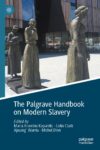This is a preprint of: Ellerman, David. 2025. “The Historical and Modern Arguments Against Contractual Slavery.” In The Palgrave Handbook of Modern Slavery, edited by Maria Krambia Kapardis, Colin Clark, Ajwang Warria, and Michel Dion. Palgrave Macmillan. https://doi.org/10.1007/978-3-031-58614-9_9.
Are Corporations the Problem?
Are corporations the problem? Can reforms in the area of corporate responsibility (e.g., more stakeholder governance) lead to any real changes? The goal of the paper is to analyse debates concerning the Citizens United case, corporate personhood, the stakeholder theory, the affected interests principle and, finally, deeper fallacies with respect to the rights of capital embedded in Marxism and conventional economic theories of capital and corporate finance.
Classical Liberalism and the Abolition of Certain Voluntary Contracts
This paper analyzes three contracts and shows that there is indeed a deeper democratic or Enlightenment classical liberal tradition of jurisprudence that rules out those contracts. The ‘problem’ is that the same principles imply the abolition of the employment contract, the contract for renting human beings, which is the foundation for the economic system that is often (but superficially) identified with classical liberalism itself. Frank Knight is taken throughout as the exemplary advocate of the economics of conventional classical liberalism.
Worker Cooperatives and Other “Cooperatives”
When is a “Coop” not really a cooperative? The short answer is whenever the actual activity of the “cooperative” is not carried out by the members but by employees. The problem is, of course, not in cooperation per se but in the hiring, employing, renting, or leasing of people to carry out the supposedly “cooperative” activities of the “cooperative.”
Historical and Modern Arguments about Contractual Slavery
The overall conclusion is that any institution or practice—human trafficking is a modern case in point—that, in effect, treats a person as a non-person, as only a means instead of as an end-in-themselves, violates their inalienable rights and is illegitimate, even with consent.
Is “Capitalism” a Misnomer? On Marx’s “capitalism” and Knight’s “civilization”
This is an open access article from the European Journal of the History of Economic Thought.
The name “capitalism” derives from Marx’s false analogy between medieval land ownership and the “ownership of the means of production.” However, unlike medieval land, capital goods can be rented out, e.g., by Frank Knight’s entrepreneur, and then the capital owner does not hold those management or product rights. What then is the characteristic institution in our civilization? It is the voluntary renting of workers. What then is the relationship between Classical Liberalism, the dominant philosophy behind Economics, and a lifetime labor contract? Frank Knight had plenty to say against the doctrine of inalienable rights which disallows such contracts.
The Kantian Person/Thing Principle in Political Economy
This is Chapter 4 in my book: Ellerman, David. 1995. Intellectual Trespassing as a Way of Life: Essays in Philosophy, Economics, and Mathematics. Lanham MD: Rowman & Littlefield.
Ethical theories can be broadly grouped into utilitarian theories and rights-based theories. Modern economics is so thoroughly utilitarian that most economists would be hard-pressed to cite the application of a rights-based argument to economic institutions. Yet the normative principles outlined in the first two chapters, the labor theory of property and the de facto theory of inalienability, are squarely within the rights-based tradition. The democratic principle of self-determination is also a closely allied rights-based theory [see Ellerman 1992].
The Libertarian Case for Slavery (A Spoof on Nozick)
This is Chapter 3 from my book: Ellerman, David. 1995. Intellectual Trespassing as a Way of Life: Essays in Philosophy, Economics, and Mathematics. Lanham MD: Rowman & Littlefield.
Liberalism is living a lie. It pretends that the contract to sell all of one’s labor, the self-enslavement contract, is an invalid contract beyond the pale while the contract to sell one’s labor piecemeal (by the hour, day, month, or year) is a perfectly valid contract above reproach. The self-enslavement contract is one of the skeletons in liberalism’s intellectual closet. Defenders of liberal capitalism are quick to accept even the most superficial arguments against voluntary slavery just to shove the issue back in the closet—just so long as the arguments do not carry over to the current contract to rent oneself out, the employer-employee contract. Who wants to be seen as, in effect, defending voluntary slavery by showing how most arguments against the self-sale contract are baseless (aside from one “J. Philmore”)?







